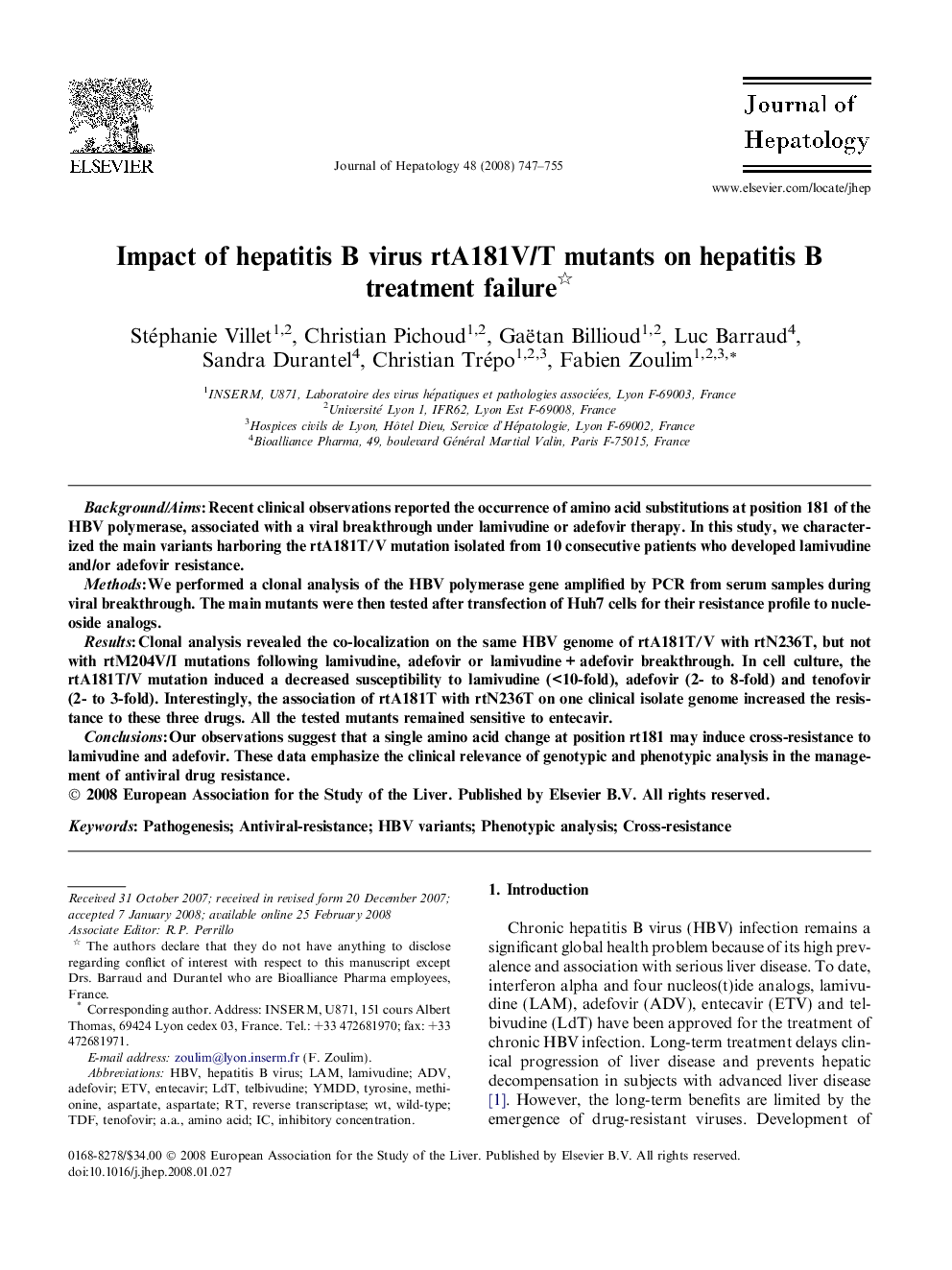| Article ID | Journal | Published Year | Pages | File Type |
|---|---|---|---|---|
| 6108401 | Journal of Hepatology | 2008 | 9 Pages |
Background/AimsRecent clinical observations reported the occurrence of amino acid substitutions at position 181 of the HBV polymerase, associated with a viral breakthrough under lamivudine or adefovir therapy. In this study, we characterized the main variants harboring the rtA181T/V mutation isolated from 10 consecutive patients who developed lamivudine and/or adefovir resistance.MethodsWe performed a clonal analysis of the HBV polymerase gene amplified by PCR from serum samples during viral breakthrough. The main mutants were then tested after transfection of Huh7 cells for their resistance profile to nucleoside analogs.ResultsClonal analysis revealed the co-localization on the same HBV genome of rtA181T/V with rtN236T, but not with rtM204V/I mutations following lamivudine, adefovir or lamivudine + adefovir breakthrough. In cell culture, the rtA181T/V mutation induced a decreased susceptibility to lamivudine (<10-fold), adefovir (2- to 8-fold) and tenofovir (2- to 3-fold). Interestingly, the association of rtA181T with rtN236T on one clinical isolate genome increased the resistance to these three drugs. All the tested mutants remained sensitive to entecavir.ConclusionsOur observations suggest that a single amino acid change at position rt181 may induce cross-resistance to lamivudine and adefovir. These data emphasize the clinical relevance of genotypic and phenotypic analysis in the management of antiviral drug resistance.
